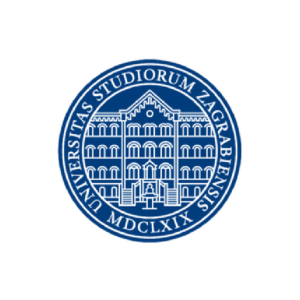The University of Zagreb (UNIZG), Croatia, founded in 1669, is the oldest university in Croatia and South-Eastern Europe. As a comprehensive public Central European university, it offers education and research in all scientific fields and a broad spectrum of courses at all study levels, from undergraduate to postgraduate. With 31 faculties and 3 art academies it is the flagship educational and research institution in the country, a place where more than 7,500 employees and 70,000 students develop knowledge and acquire skills. The University excels not only in teaching, but also in research, contributing with over 51% of the annual research output in Croatia
Academic: GPA of 3 or above on their studies to date
English Language:
– IELTS: 6.0
– TOEFL iBT: 78
– Duolingo English Test: 100
23 September 2024 – 18 February 2025
Applicants 2022
Applicants : 340 students
GPA : 3.00-4.00
TOEFL iBT Score : 102
IELTS Score : 5.5-8
Duolingo English Test Score : 75-155
Awardees 2022
Awardees : 10 students
GPA : 3.23-3.93
TOEFL iBT Score : –
IELTS Score : 7.5
Duolingo English Test Score : 130-140
Applicants 2023
Applicants : 214 students
GPA : 3.03-3.99
TOEFL iBT Score : –
IELTS Score : 6-8
Duolingo English Test Score : 80-150
Awardees 2023
Awardees : 15 students
GPA : 3.06-3.99
TOEFL iBT Score : –
IELTS Score : –
Duolingo English Test Score : 130-140
Available Courses
Objectives: analysis of macroeconomic environments & markets, selected companies’ business models, competitive strategies, SWOT & TOWS analyses, identifying key risks, evaluating impact on company’s goals, determining comprehensive risk management strategy
The goal is to provide knowledge and help develop skills for human resource management in organizations. Through various topics and case studies, students can develop an understanding of the strategic importance of HR development and management.
The course offers a historical account of the development & understanding of the concept of human rights as a political ideal (with its political concepts and controversies) invoked in different political situations.
Topics covered: project definition, project management discipline, project life cycle & organization, project management process groups, planning techniques, financial analysis, software project specifics, project management tools.
History of ecology, development, matter & structure of Earth, global ecology problems, human influence, environmental pollution with chemical substances, biogeochemical cycles of macro elements, isotopes & nuclear analytical methods & techniques.
Course Business Informatics demonstrates practical, managerial-oriented approach towards information technology usage, aiming to provide solutions for business problems, and to provide opportunities for companies by increasing productivity and quality.
Doing business in the international environment – learning about issues concerning globalization, different regional & global integrations, int. trade & investment strategies, how particular divisions operate in internationally competitive firms.
The course reflects on the importance, value & role of play, games and sport in human life, but also critically analyzes important issues in sports such as doping, technology, e-sport, gender, and inclusion of transgender and intersex athletes.
Ethical questions related to development & application of new technologies, predominantly robotics, AI & computer science, in numerous areas of human life, and how standard ethical theories like utilitarianism, deontology & virtue ethics attempt to provide answers to these questions.
Set in a multi-cultural setting via cooperation with University of Houston (USA), the course puts a strong emphasis on practical applications regarding variety of cultural situations, challenges and paradigms.
The main goal of the course is the student’s adoption of basic knowledge required for successful interpersonal communication in business environment and efficient figuration of messages in public and written communication.
Students get acquainted with the practice & theory of interest representation and lobbying in the EU and improve their understanding of various factors affecting the patterns of strategic behavior in interest representation.
Analyzing the complex interplay between language and context that enables communication. Topics include: background knowledge, common ground, presuppositions, reference Cooperative Principle, implicatures, politeness, intercultural pragmatics.
The course prepares students for solving social problems connected with work, applying basic knowledge of sociology and psychology in work surroundings, effective leadership & teamwork, professional & business ethics.
The course examines bioethical problems of relevance to legal field and it involves analysis of the development of moral, and bioethical argument about the development of health law.
The course examines the origins and development of European integration since 20th century. It deals with the European Communities from their foundation until the Treaty of Maastricht, and the role of the European Union and its institutions.
The course is designed for students of social sciences & humanities to learn the basic Python coding skills and computational thinking by manually implementing a basic neural network from scratch on the MNIST dataset.

